-
REVIEW10-09-2023
Effects on communication due to face mask use: an integrative review
Revista Brasileira de Enfermagem. 2023;76(4):e20220674
Abstract
REVIEWEffects on communication due to face mask use: an integrative review
Revista Brasileira de Enfermagem. 2023;76(4):e20220674
DOI 10.1590/0034-7167-2022-0674
Views0See moreABSTRACT
Objectives:
to integrate evidence from studies on auditory perceptual and speech production effects in communication situations with face mask use.
Methods:
an integrative literature review, in MEDLINE, Cochrane Library and Embase databases. The guiding question was: what effects on communication (perceptual-auditory and speech production) occur with face mask use?
Results:
searches in electronic databases resulted in 1,478 studies and filtering resulted in 29 final studies.
Conclusions:
mask use has effects on communication, both in perception and speech production, factors that are also related to quality of life, stress and socio-emotional factors. These data can impact on indicators and alerts in favor of adopting strategies to manage mask use, involving speech production and perception when wearing a mask in health services.
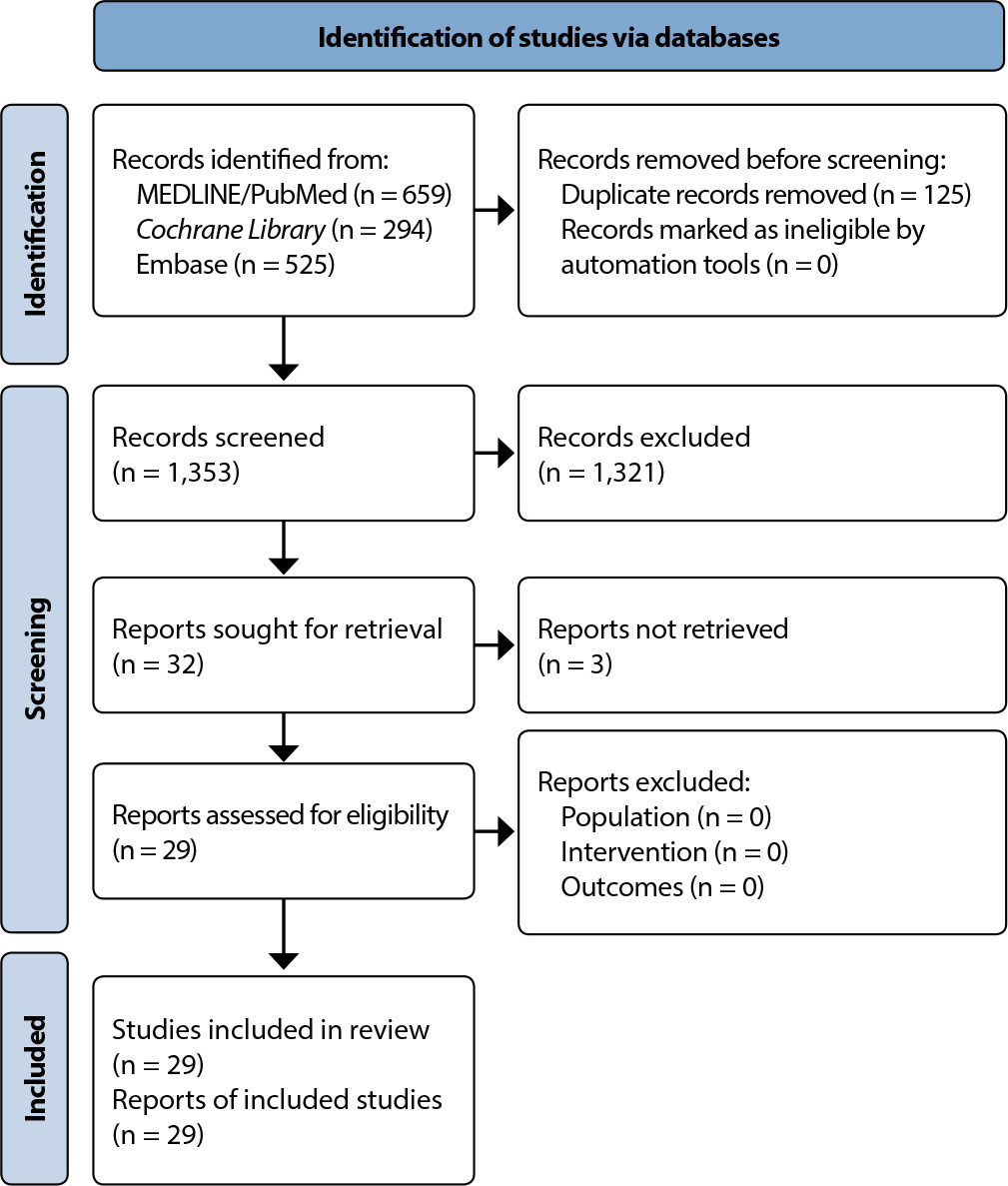
-
10-09-2023
Variabilidade glicêmica e mortalidade em unidades de terapia intensiva oncológicas
Revista Brasileira de Enfermagem. 2023;76(4):e20220812
Abstract
Variabilidade glicêmica e mortalidade em unidades de terapia intensiva oncológicas
Revista Brasileira de Enfermagem. 2023;76(4):e20220812
DOI 10.1590/0034-7167-2022-0812
Views0See moreRESUMEN
Objetivo:
investigar la asociación entre la variabilidad glucémica y la mortalidad en pacientes ingresados en unidades de cuidados intensivos oncológicos.
Métodos:
Se llevó a cabo un estudio de cohorte retrospectivo utilizando una muestra de conveniencia de 30 historias clínicas de pacientes de ambos sexos mayores de 18 años. La variabilidad glucémica se midió utilizando la desviación estándar y la amplitud general. El análisis estadístico se realizó utilizando la curva ROC (receiver operating characteristic) y el área bajo la curva (AUC). El nivel de significancia (α) se estableció en un 5% con un intervalo de confianza (IC) del 95%.
Resultados:
El estudio incluyó a 14 pacientes masculinos (46,67%) con una edad media de 60±15 años. Se recopilaron un total de 1503 muestras de glucemia. El análisis AUC para la desviación estándar no mostró ningún resultado estadísticamente significativo (p = 0,966; IC del 95% = [0,283, 0,726]). Por el contrario, la amplitud general tuvo una asociación estadísticamente significativa con la mortalidad (p = 0,049; IC del 95% = [0,514, 0,916]).
Conclusiones:
Este estudio encontró que la variabilidad glucémica medida por la amplitud general está significativamente asociada con la mortalidad del paciente en unidades de cuidados intensivos oncológicos. Estos hallazgos sugieren que el monitoreo de la variabilidad glucémica puede ser un factor importante en el manejo de pacientes críticamente enfermos en unidades de cuidados intensivos oncológicos.
-
10-09-2023
Tradução e validação do Multidimensional Individual and Interpersonal Resilience Measure
Revista Brasileira de Enfermagem. 2023;76(4):e20220696
Abstract
Tradução e validação do Multidimensional Individual and Interpersonal Resilience Measure
Revista Brasileira de Enfermagem. 2023;76(4):e20220696
DOI 10.1590/0034-7167-2022-0696
Views0See moreRESUMEN
Objetivo:
traducir, adaptar culturalmente y validar el Multidimensional Individual and Interpersonal Resilience Measure para el portugués brasileño.
Método:
después de la traducción inicial, la versión pre-final pasó por rigurosos procedimientos de adaptación cultural. Como resultado, la versión final adaptada fue sometida a un estudio de validez.
Resultados:
los procedimientos de adaptación proporcionaron equivalencia entre las versiones pre-final y original en términos semánticos, idiomáticos, experienciales y conceptuales. Un total de 187 ancianos fueron incluidos en el estudio de validez. El análisis factorial exploratorio (AFE) generó un modelo de cinco factores ((RMSEA = 0,030; TLI = 0,959; X = 151,590 p> 0,05). La versión final mostró adecuada consistencia (α de Cronbach = 0,705) y confiabilidad prueba-reprueba (ICC=0,835). No se encontró correlación estadísticamente significativa entre la resiliencia y las variables sociodemográficas y epidemiológicas evaluadas en este estudio.
Conclusión:
EMRII-BR es un instrumento válido y confiable para medir la resiliencia en ancianos brasileños.
-
10-09-2023
Autocompaixão entre estudantes de enfermagem de uma Universidade Estadual da Indonésia durante a pandemia de COVID-19
Revista Brasileira de Enfermagem. 2023;76(4):e20220585
Abstract
Autocompaixão entre estudantes de enfermagem de uma Universidade Estadual da Indonésia durante a pandemia de COVID-19
Revista Brasileira de Enfermagem. 2023;76(4):e20220585
DOI 10.1590/0034-7167-2022-0585
Views0See moreRESUMEN
Objetivo:
Determinar el nivel de autocompasión e investigar las relaciones entre las variables sociodemográficas y la autocompasión entre estudiantes de pregrado de enfermería en una universidad estatal de Indonesia durante la pandemia de COVID-19
Métodos:
Este estudio utilizó un diseño transversal. Las muestras se seleccionaron mediante una técnica de muestreo aleatorio estratificado proporcional (n=260). Los datos se recopilaron utilizando una versión indonesia de la Escala de Autocompasión, que consta de 6 subescalas: bondad propia, autocrítica, humanidad común, aislamiento, atención plena y sobre identificación. Los datos se analizaron mediante análisis univariado y bivariado.
Resultados:
El 60% de los estudiantes tenían autocompasión moderada. Los estudiantes puntuaron más alto en amabilidad consigo mismos (3,93±1,02) y sobre identificación (3,58±0,94), lo que indica que a menudo intentaban amarse a sí mismos cuando sentían dolor emocional y a menudo se dejaban llevar cuando sucedió algo perturbador. Posteriormente, se encontró una correlación significativa entre la edad y la autocompasión (p<0,05).
Conclusión:
La autocompasión entre los estudiantes de enfermería debe mejorarse por medio de intervenciones como la alfabetización de la compasión, el entrenamiento en atención plena y las técnicas experienciales basadas en la compasión.
-
ORIGINAL ARTICLE10-09-2023
Expansion of Psychosocial Care Centers and their relationship with health and human rights
Revista Brasileira de Enfermagem. 2023;76(4):e20220662
Abstract
ORIGINAL ARTICLEExpansion of Psychosocial Care Centers and their relationship with health and human rights
Revista Brasileira de Enfermagem. 2023;76(4):e20220662
DOI 10.1590/0034-7167-2022-0662
Views0See moreABSTRACT
Objective:
To analyze the factors associated with the expansion of the number of Brazilian Psychosocial Care Centers (CAPS) considering aspects related to the general health scenario and the institutionalization of human rights.
Methods:
An analytical document-based study, developed between February 2020 and May 2022, whose secondary data on the 27 Brazilian capitals were collected on platforms in the public domain, based on the time series from 2015 to 2020. Indicators were listed based on health system infrastructure and quality of life. For data analysis, descriptive statistics, Pearson’s correlation test and Student’s t test were used.
Results:
The capitals that expanded the number of CAPS in the analyzed period were the ones that presented the greatest political-legal framework for the protection of human rights.
Conclusion:
The results suggest that the greater the commitment of governments in favor of human rights, the greater the investment for CAPS expansion.

-
ORIGINAL ARTICLE10-09-2023
Prevalence of non-communicable chronic diseases: arterial hypertension, diabetes mellitus, and associated risk factors in long-lived elderly people
Revista Brasileira de Enfermagem. 2023;76(4):e20220592
Abstract
ORIGINAL ARTICLEPrevalence of non-communicable chronic diseases: arterial hypertension, diabetes mellitus, and associated risk factors in long-lived elderly people
Revista Brasileira de Enfermagem. 2023;76(4):e20220592
DOI 10.1590/0034-7167-2022-0592
Views0See moreABSTRACT
Objective:
To identify the prevalence of non-communicable chronic diseases: arterial hypertension, diabetes mellitus, and associated risk factors in long-lived elderly people from three Brazilian regions.
Methods:
This is a multicenter, cross-sectional, and comparative study conducted with elderly people aged 80 years or older.
Results:
Higher prevalence of arterial hypertension were observed among those who use polypharmacy (75.7%), among elderly people aged between 80 and 84 years (33.9%), as well as in elderly people who are overweight (78.2%). The prevalence of diabetes was 24% (RP: 0.76; 95% CI: 0.59-0.98) lower among women compared to men and 2.15 times higher among those who use five or more medications (RP: 2.15; 95% CI: 1.63-2.85).
Conclusions:
In our sample, polypharmacy, body weight, and gender determine the prevalence of non-communicable chronic diseases: arterial hypertension and diabetes mellitus in long-lived elderly people.
-
EXPERIENCE REPORT10-09-2023
Service organization protocol for coping with undergraduate students’ psychological distress: a collective construction
Revista Brasileira de Enfermagem. 2023;76(4):e20220535
Abstract
EXPERIENCE REPORTService organization protocol for coping with undergraduate students’ psychological distress: a collective construction
Revista Brasileira de Enfermagem. 2023;76(4):e20220535
DOI 10.1590/0034-7167-2022-0535
Views0See moreABSTRACT
Objective:
to report on the experience of the elaboration process of a service organization protocol for coping with public undergraduate students’ psychological distress in the countryside of São Paulo.
Method:
experience report on protocol production, an action research product, carried out according to the health care and service organization protocol model, made possible by remote meetings with 33 professionals linked to the management and services of the university’s health and social assistance departments.
Results:
collective protocol production provided an opportunity for an institutional agreement on educational, therapeutic and support actions, to be developed in groups or individually with students, with provision for permanent education with civil servants.
Final considerations:
this experience made it possible to list specific actions to face undergraduate students’ psychological distress, bringing health professionals closer to those in management, promoting the exchange of concepts and practices to re-signify and transform the work developed.
-
ORIGINAL ARTICLE10-09-2023
Compliance with central venous catheter infection prevention practices after intervention with simulation
Revista Brasileira de Enfermagem. 2023;76(4):e20220574
Abstract
ORIGINAL ARTICLECompliance with central venous catheter infection prevention practices after intervention with simulation
Revista Brasileira de Enfermagem. 2023;76(4):e20220574
DOI 10.1590/0034-7167-2022-0574
Views0See moreABSTRACT
Objectives:
to assess the effect of an educational intervention based on clinical simulation on nursing professionals’ compliance with practices to prevent peripherally inserted central venous catheter-associated primary bloodstream infections in a Neonatal Intensive Care Unit.
Methods:
a quasi-experimental study, with preand post-intervention assessment with a single group. The population consisted of 41 nursing professionals, with 31 observations being made before and after the intervention. Analyzes were performed using descriptive statistics and the McNemar non-parametric test. A significance level of 5% was adopted.
Results:
after the intervention, there was an increase in compliance with prevention practices of surgical antisepsis and professional hand hygiene, skin antisepsis with chlorhexidine, waiting for the time of the effect of alcoholic chlorhexidine and compliance with the sterile technique.
Conclusions:
the educational intervention showed an effect on increasing compliance with catheter-associated infection prevention practices.
-
ORIGINAL ARTICLE03-24-2021
Costs of healthcare-associated infections in an Intensive Care Unit
Revista Brasileira de Enfermagem. 2021;74(1):e20200275
Abstract
ORIGINAL ARTICLECosts of healthcare-associated infections in an Intensive Care Unit
Revista Brasileira de Enfermagem. 2021;74(1):e20200275
DOI 10.1590/0034-7167-2020-0275
Views1See moreABSTRACT
Objectives:
to evaluate hospitalization costs of patients with and without Healthcare-Associated Infections an Intensive Care Unit.
Methods:
a retrospective case-control study. Data collection was retrieved from the medical records of Intensive Care Unit of a medium-sized public hospital in Goiás-Brazil. For each case, two controls were selected. Data on socioeconomic, clinical, and hospital costs were collected. To verify associations between variables, Odds Ratio and linear regression were calculated.
Results:
a total of 21 patients diagnosed with Healthcare-Associated Infections and 42 controls were evaluated. The hospitalization cost for patients with infection was four times higher than for non-infection patients (p-value<0.001). There was an association between infection and higher mortality (p-value <0.001), longer hospital-stay (p-value =0.021), and higher hospital costs (p-value =0.007).
Conclusions:
hospitalization costs of diagnosed Healthcare-Associated Infections patients are high compared to those who do not have this diagnosis.

-
ORIGINAL ARTICLE03-24-2021
Feelings, experiences and expectations of kidney transplant individuals and challenges for the nurse
Revista Brasileira de Enfermagem. 2021;74(1):e20200392
Abstract
ORIGINAL ARTICLEFeelings, experiences and expectations of kidney transplant individuals and challenges for the nurse
Revista Brasileira de Enfermagem. 2021;74(1):e20200392
DOI 10.1590/0034-7167-2020-0392
Views1See moreABSTRACT
Objectives:
to identify feelings, experiences, and expectations of kidney transplant patients, generated from the diagnosis of chronic renal disease until the post-transplant period, highlighting the challenges for nurses to incorporate individualized care to cope throughout the disease process.
Methods:
qualitative, descriptive research, carried with seven kidney transplant patients, in the city of Manaus, State of Amazonas. The data analysis followed the methodological referential of Bardin’s content analysis.
Results:
the diagnosis of the disease was experienced negatively, and hemodialysis was described as an imprisonment and health decline. The transplant meant an improvement in quality of life. The main difficulties were lack of a specialized hospital and low immunity.
Conclusions:
the nurses’ approach of chronic renal patient and with the renal transplantation favored the discovery of solutions facing the demands of the disease and allowed greater capacity to implement individualized care, surrounding a relationship of trust and respect.
-
ORIGINAL ARTICLE06-11-2021
Work at the surgical center: risks of the pathogenic suffering of the nursing team
Revista Brasileira de Enfermagem. 2021;74(2):e20190803
Abstract
ORIGINAL ARTICLEWork at the surgical center: risks of the pathogenic suffering of the nursing team
Revista Brasileira de Enfermagem. 2021;74(2):e20190803
DOI 10.1590/0034-7167-2019-0803
Views0See moreABSTRACT
Objectives:
to assess the risks of pathogenic suffering related to the experience of nursing workers in the operating room of a university hospital.
Methods:
cross-sectional, quantitative study, carried out from 11/2017 to 01/2018 in a university hospital in the South of Brazil. The sample was composed by 159 nursing workers of the units of a surgical center, that answered to the Scale of Evaluation of Pathogenic Suffering at Work. Data was submitted to statistical analysis.
Results:
the workers present low risk of pathogenic suffering related to the experiences at work, being the results of its factors: Uselessness (1.47±0.761) – low risk; Indignity (2.372±1.035) – medium risk; and Disqualification (1.74±0.903) – low risk.
Conclusions:
the evaluation of Pathogenic Suffering at Work Scale was positive, predominating low risk for pathogenic suffering of surgical center workers related to professional experiences, because they feel useful, valued and are not indignant about their work, feelings that reflect on the quality of care provided.
-
ORIGINAL ARTICLE05-21-2021
Music in the relief of stress and distress in cancer patients
Revista Brasileira de Enfermagem. 2021;74(2):e20190838
Abstract
ORIGINAL ARTICLEMusic in the relief of stress and distress in cancer patients
Revista Brasileira de Enfermagem. 2021;74(2):e20190838
DOI 10.1590/0034-7167-2019-0838
Views0See moreABSTRACT
Objectives:
to evaluate the effects of music on the physiological stress and distress of cancer patients being treated in a hospital.
Methods:
quasi-experimental study carried out with cancer patients hospitalized in the nursing wards of a public hospital. There was a single 15-minute intervention using music. It was individual, and headphones were used for patients to listen to three songs chosen by each one. The levels of stress and distress were measured before and after the intervention, using music to analyze the cortisol in the saliva and the answers to the distress thermometer. The significance level of the statistical analysis was 5%, using the non-parametric Wilcoxon test.
Results:
the mean age of the 26 patients was 56 years old. Most were female, white, and had breast cancer. After intervention, there were statistically significant diminutions in both stress and distress — p < 0.001.
Conclusions:
the use of music diminishes the stress and the distress of cancer patients.

-
ORIGINAL ARTICLE05-21-2021
Orthognathic surgery: doubts from patients with orofacial fissures regarding the immediate postoperative period
Revista Brasileira de Enfermagem. 2021;74(2):e20200089
Abstract
ORIGINAL ARTICLEOrthognathic surgery: doubts from patients with orofacial fissures regarding the immediate postoperative period
Revista Brasileira de Enfermagem. 2021;74(2):e20200089
DOI 10.1590/0034-7167-2020-0089
Views1See moreABSTRACT
Objectives:
to identify the main doubts regarding the immediate postoperative care of patients with orofacial clefts undergoing orthognathic surgery.
Methods:
cross-sectional, quantitative study, developed in a public and tertiary hospital, between November 2017 and May 2018. Data collection occurred through interviews during the preoperative nursing consultation. An instrument was used to describe doubts, which later were grouped according to the subject.
Results:
48 patients participated. The doubts referred to sun exposure (56%), food/mastication (48%), the relationship between intermaxillary block-breathing-vomiting (48%), oral hygiene (31%), physical activity restriction (27%), nasopharyngeal cannula, removal of surgical stitches, hospitalization time and speech/communication (23%), bleeding, cryotherapy, facial massage, aesthetic and functional results, healing, edema/ecchymosis, postoperative pain, and changes in facial sensitivity (21%).
Conclusions:
the doubts were related to food, the period of convalescence, care for the surgical wound, postoperative complications, and medications.
-
ORIGINAL ARTICLE05-28-2021
The work of a Brazilian nursing team of collective health in the special indigenous health district
Revista Brasileira de Enfermagem. 2021;74(2):e20200116
Abstract
ORIGINAL ARTICLEThe work of a Brazilian nursing team of collective health in the special indigenous health district
Revista Brasileira de Enfermagem. 2021;74(2):e20200116
DOI 10.1590/0034-7167-2020-0116
Views0See moreABSTRACT
Objective:
To identify the potential and the limits of the actions of the nursing team in the Primary Health Care for the Health of the Indigenous.
Methods:
This is a quantitative study guided by the Theory of Practical Intervention of Nursing and Collective Health. 230 nursing professionals participated, responding to an instrument about the frequency of the actions carried out in assistance, management, teaching, and research.
Results:
168 nursing technicians and 62 nurses participated. As strengths, 80% participated in the assistance most of the time. Stand out: 90.3% and 71% of nurses carried out nursing consultations and house visits, respectively. As a limitation, the involvement in education and research is small. Only 2% of the interviewees carried out scientific researches, reflecting the need to broaden and qualify care and improve the use of traditional practices, overcoming the biomedical model.
Final considerations:
Nursing assistance is essential in the modification and monitoring of the epidemiological profile of indigenous populations, and its results allow for the planning of quality actions.

-
ORIGINAL ARTICLE05-28-2021
Managed clinical protocol: impact of implementation on sepsis treatment quality indicators
Revista Brasileira de Enfermagem. 2021;74(2):e20200282
Abstract
ORIGINAL ARTICLEManaged clinical protocol: impact of implementation on sepsis treatment quality indicators
Revista Brasileira de Enfermagem. 2021;74(2):e20200282
DOI 10.1590/0034-7167-2020-0282
Views1See moreABSTRACT
Objectives:
to assess the impact of the implementation of a managed sepsis protocol on quality indicators of treatment for septic patients in an emergency department of a university hospital.
Methods:
an observational epidemiological study involving septic patients. The study was divided into two phases, pre-intervention and intervention, resulting from the implementation of the managed sepsis protocol. The study variables included sepsis treatment quality indicators. The results were statistically analyzed using the program Epi InfoTM.
Results:
the study sample included 631 patients, 95 from pre-intervention phase and 536 from intervention phases. Implementing the protocol increased patients’ chances of receiving the recommended treatment by 14 times. Implementing the protocol reduced the hospitalization period by 6 days (p <0.001) and decreased mortality (p <0.001).
Conclusions:
this study showed that implementing the managed protocol had an impact on the improvement of sepsis treatment quality indicators.

-
ORIGINAL ARTICLE06-16-2021
The meaning of nursing 200 years after Nightingale – perceptions of professional practice in the intensivist context
Revista Brasileira de Enfermagem. 2021;74(2):e20200364
Abstract
ORIGINAL ARTICLEThe meaning of nursing 200 years after Nightingale – perceptions of professional practice in the intensivist context
Revista Brasileira de Enfermagem. 2021;74(2):e20200364
DOI 10.1590/0034-7167-2020-0364
Views0See moreABSTRACT
Objectives:
to know the meaning of contemporary nursing from the experience of intensive care nurses.
Methods:
qualitative research based on the theoretical framework of Symbolic Interactionism and the methodological framework of Interpretive Interactionism. The setting was a general hospital in Bahia, being carried out with 12 nurses working in intensive care for at least one year, through semi-structured interviews and drawing-text-theme technique, whose data were organized according to Miles and Huberman and analyzed upon the referential.
Results:
the sense of being a nurse was evidenced; a being for care, resulting from the experience in intensive care, capable of promoting the development of professional self-image, by causing, in nurses, other skills – besides the scientific ones, such as empathy, creativity, spirituality and compassion.
Final Considerations:
the sense of being a nurse, currently, expresses developments inherited from the Nightingalean proposal, but transcends the technical-managerial emphasis of this to a humanistic care perspective converging with our contemporary professional identity: a being for care.

-
REVIEW09-29-2022
Nursing students’ learning from involvement in research projects: an integrative literature review
Revista Brasileira de Enfermagem. 2022;75(1):e20210053
Abstract
REVIEWNursing students’ learning from involvement in research projects: an integrative literature review
Revista Brasileira de Enfermagem. 2022;75(1):e20210053
DOI 10.1590/0034-7167-2021-0053
Views0See moreABSTRACT
Objective:
To identify the learning outcomes and skills obtained of undergraduate nursing students involved in research projects.
Methods:
This was an integrative literature review, based on a research protocol in the CINAHL Complete databases; Cochrane Central Register of Controlled Trials; Cochrane Database of Systematic Reviews; Cochrane Methodology Register; MedicLatina; MEDLINE, Scopus and JBI, including primary and secondary studies, published between 2015 and 2020.
Results:
A total of five heterogeneous articles were included, which were categorized using Kirkpatrick’s (adapted) model. Seventeen learning outcomes acquired through participation in research projects were identified, from the learning of new knowledge and skills to the development of new attitudes and behaviors.
Final considerations:
The involvement of nursing students in research projects is important to their professional development. Future investment in research on this topic can help cement the potential of this type of student involvement.
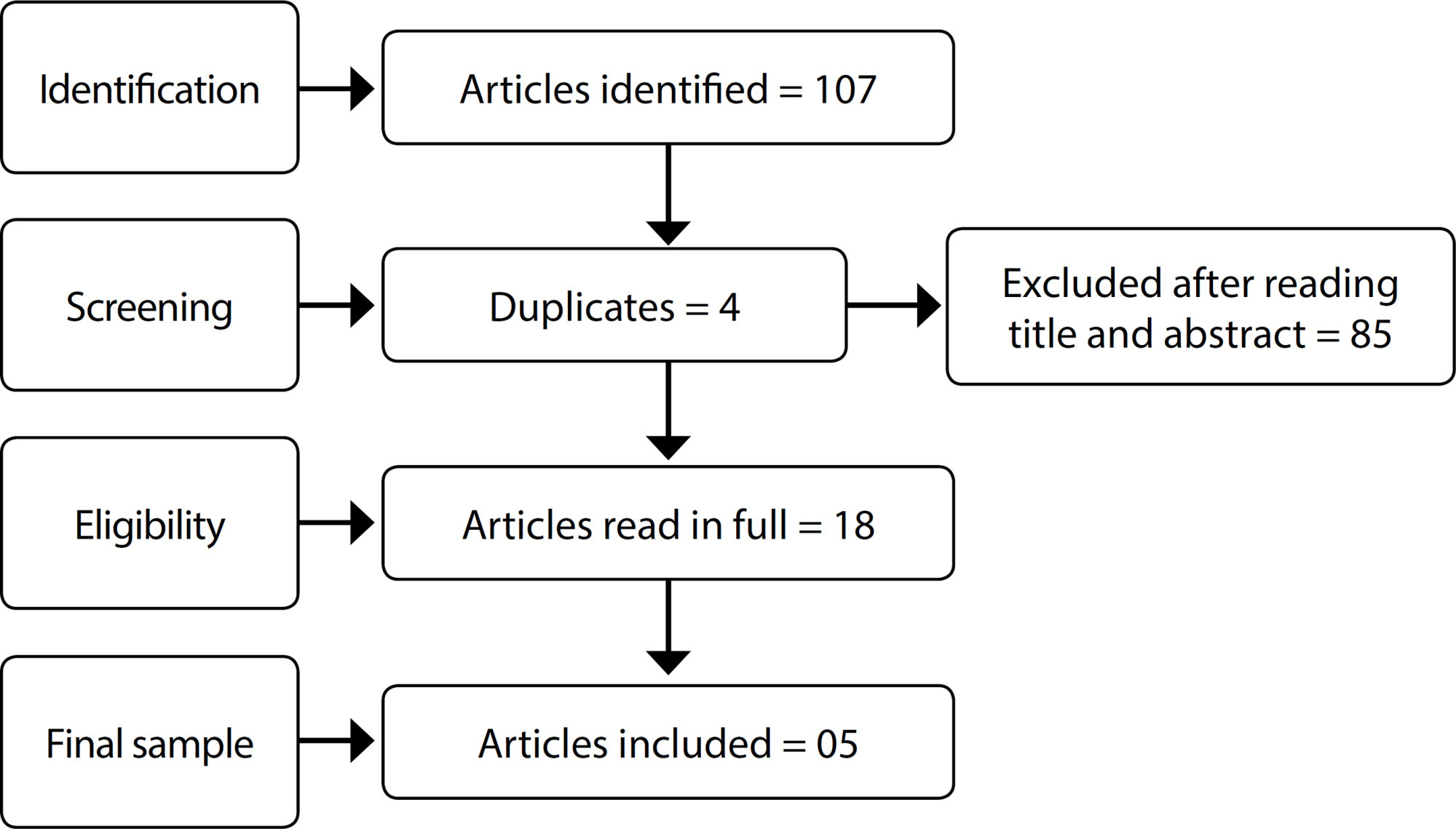
-
REVIEW12-21-2020
Hope-based interventions in chronic disease: an integrative review in the light of Nightingale
Revista Brasileira de Enfermagem. 2020;73:e20200283
Abstract
REVIEWHope-based interventions in chronic disease: an integrative review in the light of Nightingale
Revista Brasileira de Enfermagem. 2020;73:e20200283
DOI 10.1590/0034-7167-2020-0283
Views0See moreABSTRACT
Objective:
To identify the available evidence in the scientific literature about the strategies or interventions used to promote hope in people with chronic diseases.
Method:
An integrative literature review of literature published between 2009-2019, which was conducted in online browsers/databases: b-On, EBSCO, PubMed, Medline, ISI, SciELO, PsycINFO, Google Scholar. Forty-one studies were found, of which eight met the inclusion criteria.
Results:
Most studies used a quantitative approach. There was a predominance of studies from Asia and America, addressing patients with multiple sclerosis, diabetes, congestive heart failure, and cancer. Hope-based interventions were categorized by the hope attributes: experiential process, spiritual/transcendence process, rational thought process, and relational process.
Conclusion:
Hope-based interventions, in its essence, are good clinical practices in the physical, psychological, social and spiritual domains. This is congruent with the vision of nursing, first proposed by Florence Nightingale. There seem to be gaps in the literature regarding specific hope promoting interventions.
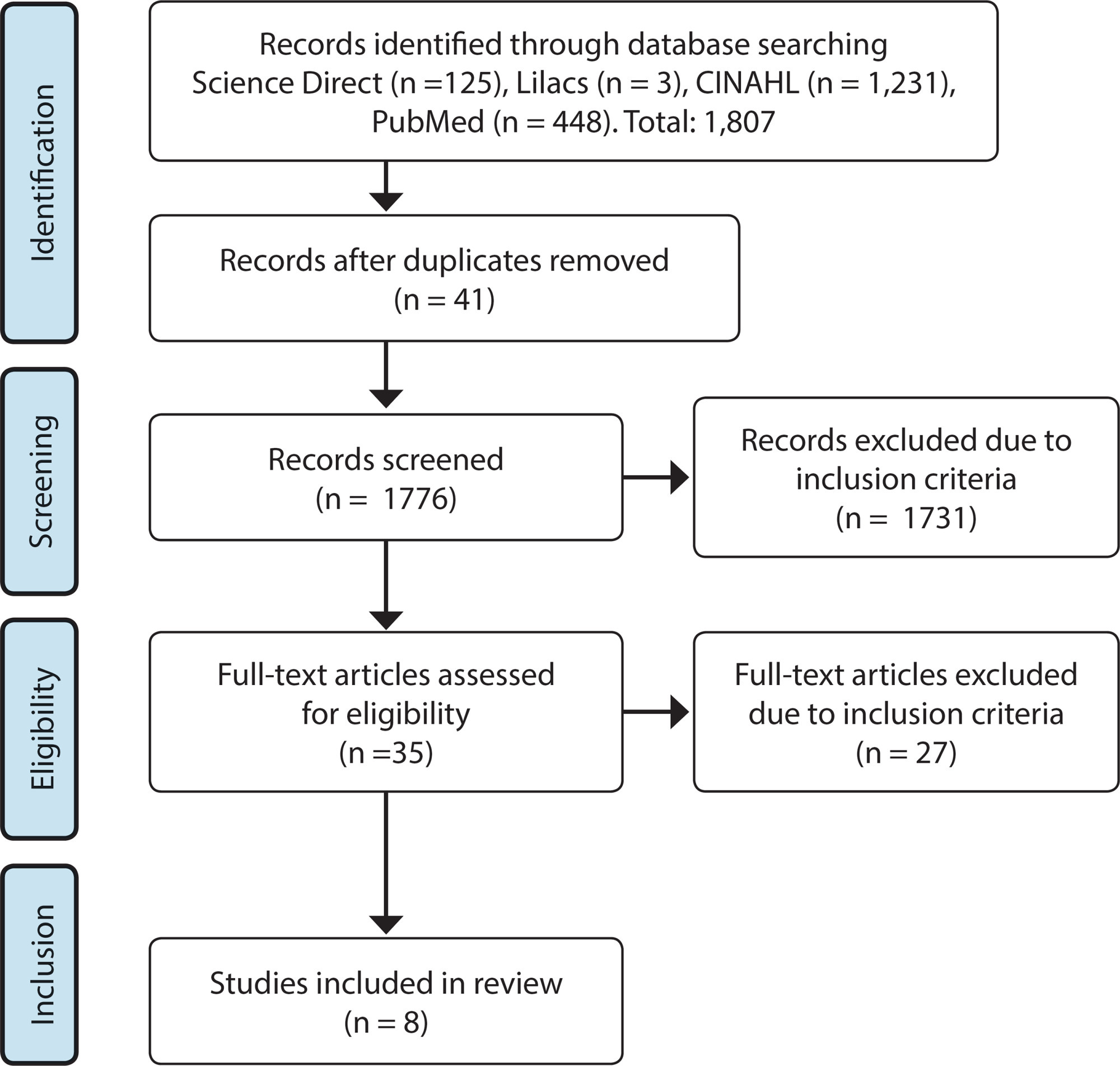
-
ORIGINAL ARTICLE12-05-2019
Quality of life related to health for heart failure patients
Revista Brasileira de Enfermagem. 2019;72:140-146
Abstract
ORIGINAL ARTICLEQuality of life related to health for heart failure patients
Revista Brasileira de Enfermagem. 2019;72:140-146
DOI 10.1590/0034-7167-2018-0368
Views0See moreABSTRACT
Objective:
To assess the quality of life related to health for heart failure patients and to relate sociodemographic and clinical data.
Method:
It is an observational and transversal study, with quantitative approach, carried out in a heart failure ambulatory in the state of Pernambuco.
Results:
In the sample (n=101), there was prevalence of men older than 60 years old, married and professionally inactive. The quality of life related to health, based on the Minnesota Living With Heart Failure Questionnaire, was considered moderate (34.3±21.6), being significantly related to age (p=0.004), functional class (p<0.001), and patients with chagasic cardiopathy (p=0.02).
Conclusion:
The quality of life in the HF group of chagasic etiology was more compromised, specially in the emotional dimension. It is suggested that studies on the hypothesis that longer ambulatory follow-up improves quality of life and that having Chagas disease interferes negatively with the quality of life of heart failure patients.
-
ORIGINAL ARTICLE09-21-2020
Prevalence of xerostomia in women during breast cancer chemotherapy
Revista Brasileira de Enfermagem. 2020;73:e20190785
Abstract
ORIGINAL ARTICLEPrevalence of xerostomia in women during breast cancer chemotherapy
Revista Brasileira de Enfermagem. 2020;73:e20190785
DOI 10.1590/0034-7167-2019-0785
Views0See moreABSTRACT
Objective:
To identify the prevalence of xerostomia in women undergoing chemotherapy for breast cancer.
Method:
Prospective cohort with 27 women who underwent up to 16 sessions of intravenous chemotherapy. Data collection was performed at the outpatient clinic of a university hospital in the city of São Paulo, where two forms were applied before the start of treatment and the Xerostomia Inventory before and after each chemotherapy session.
Results:
Complaints of dry mouth were present in 48.1% of women before chemotherapy, and they were approximately 28 times more likely to develop dry mouth during treatment. It was observed that the use of antiemetics contributed to the occurrence of xerostomia, and the anti-ulcerous were presented as a protective factor.
Conclusion:
The study identified both a high prevalence of xerostomia regardless of the chemotherapy used and the need to create protocols to improve the quality of life of these patients.
-
REVIEW06-17-2020
The role of the nurse in caring for the critical patient with sepsis
Revista Brasileira de Enfermagem. 2020;73(4):e20190031
Abstract
REVIEWThe role of the nurse in caring for the critical patient with sepsis
Revista Brasileira de Enfermagem. 2020;73(4):e20190031
DOI 10.1590/0034-7167-2019-0031
Views0See moreABSTRACT
Objectives:
to know the nursing interventions in the identification, prevention and control of sepsis in critical patients.
Methods:
integrative review of the literature, with two parallel researches using different MesH terms, using the EBSCO database and Google Scholar. Nine studies were included in the sample.
Results:
nursing interventions are centered on the creation/implementation of protocols for the early recognition of sepsis, the training of teams to ensure a safe and effective approach and the adoption of measures for infection prevention and control as a way to prevent sepsis.
Final Considerations:
the evidence shows that nurses are fundamental in the early identification, control and prevention of sepsis, preventing disease progression and contributing to decreased morbidity and mortality.
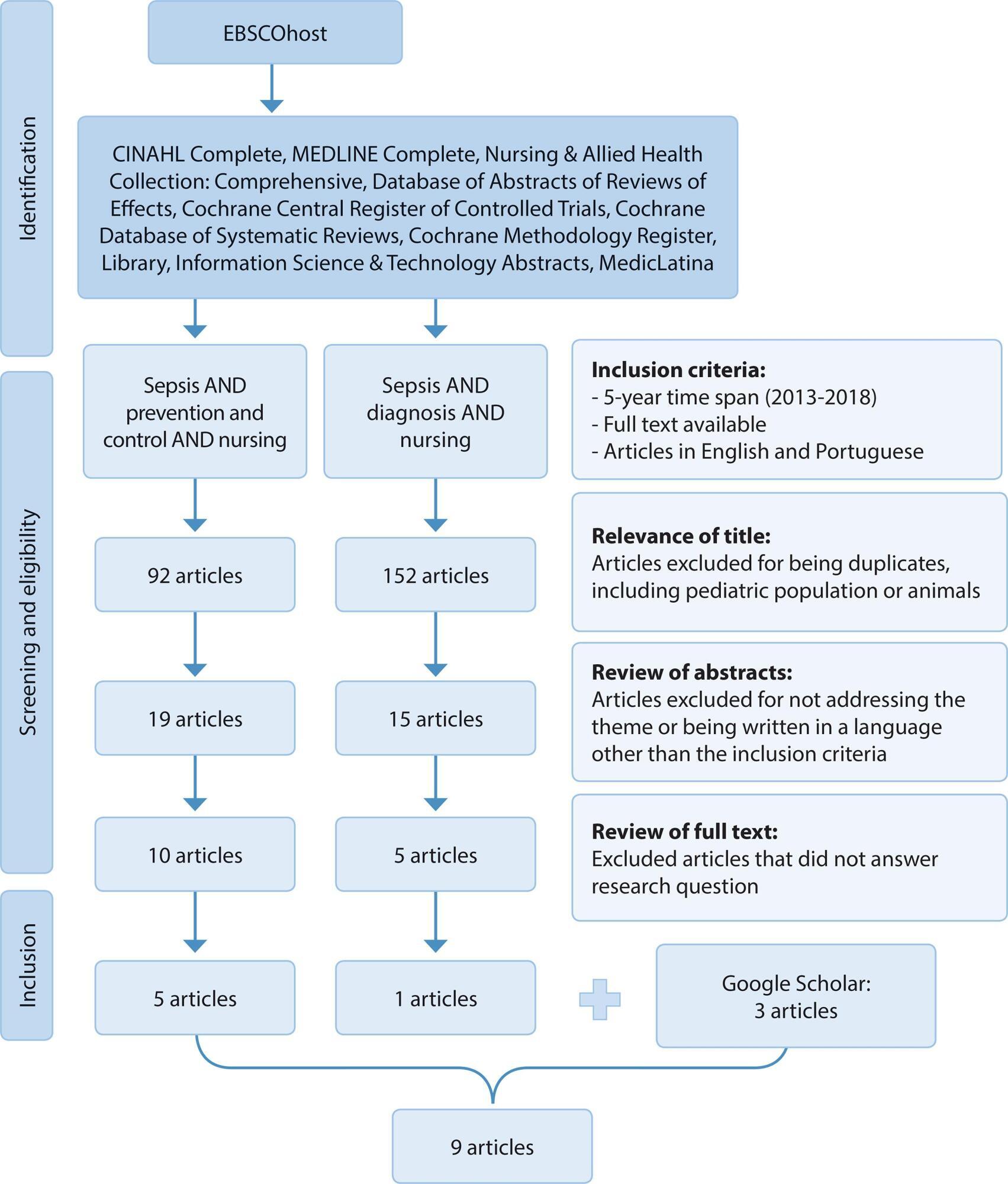
-
ORIGINAL ARTICLE02-10-2020
Common Mental Disorders and Contemporary Factors: 1982 Birth Cohort
Revista Brasileira de Enfermagem. 2020;73(1):e20180162
Abstract
ORIGINAL ARTICLECommon Mental Disorders and Contemporary Factors: 1982 Birth Cohort
Revista Brasileira de Enfermagem. 2020;73(1):e20180162
DOI 10.1590/0034-7167-2018-0162
Views0See moreABSTRACT
Objective:
To describe the association between common mental disorders and socio-demographic variables, smoking habits and stressful events among the 30-year-old members of a 1982 cohort.
Method:
Mental disorder was analyzed by the Self-Reporting Questionnaire (SRQ-20). Poisson regression was used to analyze the unadjusted and adjusted associations.
Results:
Low level of education and stressful events increased the prevalence of mental disorders for both genders. Lower income for women and unemployment for men also remained associated with CMD.
Conclusion:
It was possible to describe the association between contemporary factors and mental disorders in a young population, to which prevention and control measures, through public policies proposed to the areas of Primary Care, Mental Health and Education, can represent a better quality of life and health.
-
REVIEW12-21-2020
Lean Six Sigma methodology application in health care settings: an integrative review
Revista Brasileira de Enfermagem. 2020;73:e20190861
Abstract
REVIEWLean Six Sigma methodology application in health care settings: an integrative review
Revista Brasileira de Enfermagem. 2020;73:e20190861
DOI 10.1590/0034-7167-2019-0861
Views0See moreABSTRACT
Objective:
to analyze the scientific production on the results of Lean Six Sigma methodology in health care institutions.
Methods:
an integrative literature review, with the following question: what are the results in health institutions using Lean Six Sigma and Six Sigma methodology? The search was carried out at MEDLINE, LILACS, BDENF, CINAHL, Web of Science, and Scopus, with no time frame.
Results:
thirty-four articles were included, published between 2005 and 2019, of which 52.9% came from the United States of America. The most commonly found improvements were in hospital institutions and from the perspective of customers and internal processes.
Conclusion:
using Lean Six Sigma methodology proved to be effective in the different health care settings, evidencing a gap in its application regarding people engagement and training.
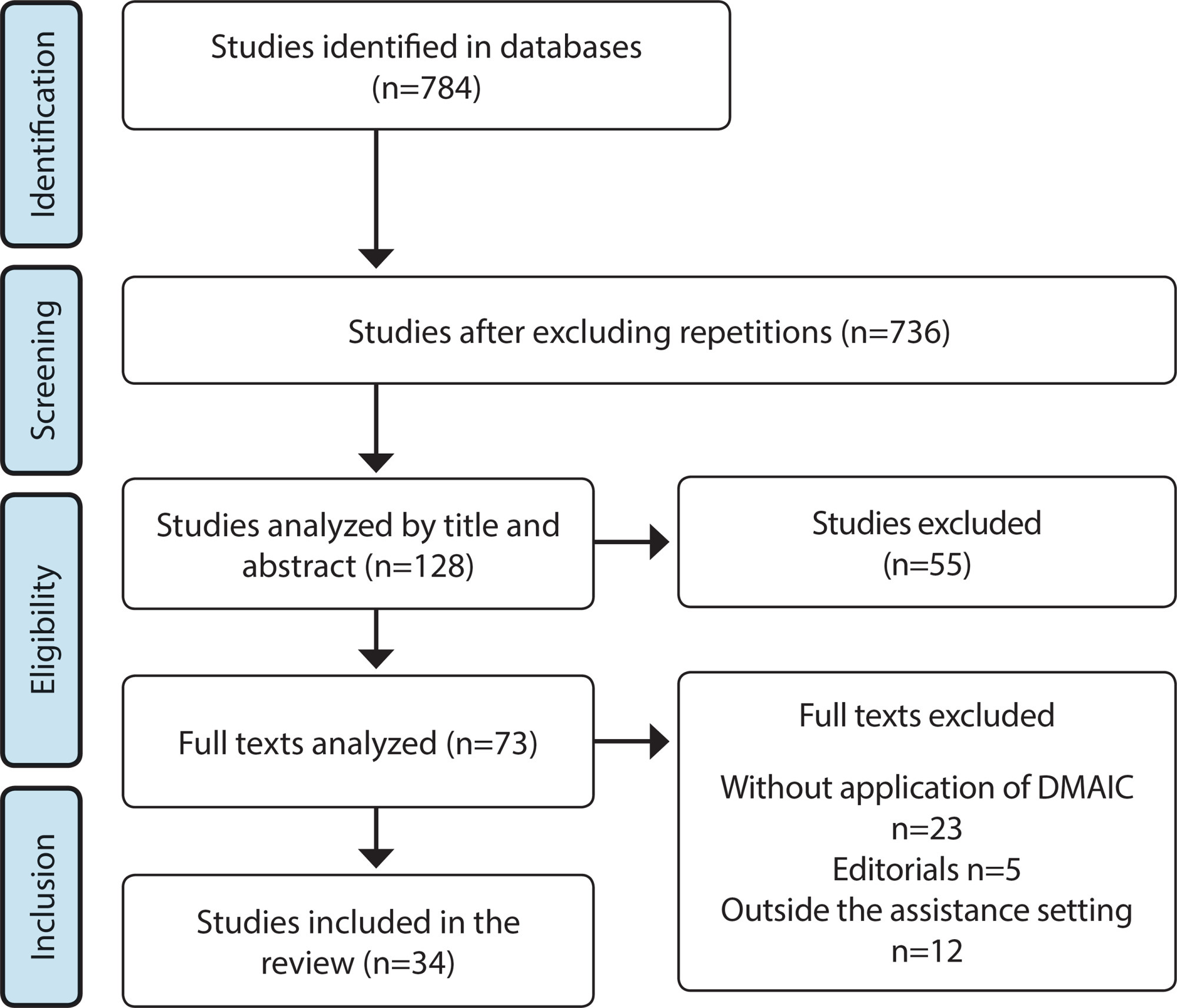
-
ORIGINAL ARTICLE10-19-2020
Factors associated with suicide risk among nurses and physicians: a cross-section study
Revista Brasileira de Enfermagem. 2020;73:e20200352
Abstract
ORIGINAL ARTICLEFactors associated with suicide risk among nurses and physicians: a cross-section study
Revista Brasileira de Enfermagem. 2020;73:e20200352
DOI 10.1590/0034-7167-2020-0352
Views1See moreABSTRACT
Objective:
to estimate the prevalence and factors associated with suicide risk among nurses and physicians.
Method:
a cross-sectional study carried out at a university hospital with 216 health professionals, who answered a socio-demographic-labor questionnaire, the Mini International Neuropsychiatric Interview (MINI) for assessing suicide risk, and the Depression, Anxiety and Stress Scale (DASS 21). The Poisson Regression Model was used for multiple analysis.
Results:
it was identified that variables such as not having a partner, history of attempted suicide, stress and depression symptoms were statistically associated with suicide risk. The prevalence of lifelong suicide attempts among nurses was 9.41%, and among physicians, 2.29%.
Conclusion:
the findings of this investigation enable the understanding of suicidal behavior among hospital nurses and physicians, in addition to enabling the development of prevention strategies in order to reduce suicide risk prevalence in this population group.
Search
Search in:
Nuvem de Tags
Adolescente (85) Atenção Primária à Saúde (239) COVID-19 (91) Criança (91) Cuidados de Enfermagem (269) Educação em Enfermagem (151) Educação em Saúde (139) Enfermagem (930) Enfermagem Pediátrica (86) Estudantes de Enfermagem (77) Estudos de Validação (131) Família (87) Idoso (208) Promoção da Saúde (99) Qualidade de Vida (104) Saúde do Trabalhador (86) Saúde Mental (145) Saúde Pública (82) Segurança do Paciente (150) Tecnologia Educacional (100)



